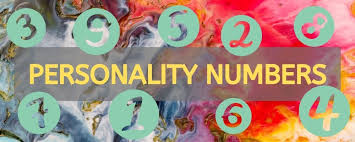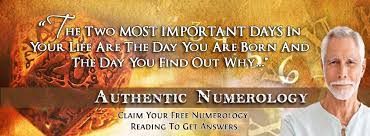What is personality number?
The concept of a “personality number” is used in certain numerology systems as a way to represent the traits and characteristics of a person. In these systems, the personality number is believed to be derived from the consonants in a person’s name and can provide insight into their personality, strengths, and weaknesses.
To determine a person’s personality number, the values of the consonants in their name are added together and reduced to a single digit, with the exception of the letters M, W, and H, which are not included in the calculation. Different numerology systems may use different methods for calculating the personality number, so it’s important to consult the specific system you’re using if you want to determine your own personality number.
It’s important to keep in mind that the concept of a personality number is not scientifically recognized and should not be taken as a definitive indicator of a person’s traits or characteristics. Numerology is a pseudoscience that is not based on any scientific evidence.
How to calculate personality numbers with the date of birth?
To calculate your personality number with your date of birth, you can use the following steps:
- Write down your full birth date in the format of month, day, and year. For example, if you were born on July 15, 1990, your birth date would be 07/15/1990.
- Reduce each component of your birth date to a single digit. You can do this by adding the digits together until you are left with a single digit. For example, for the month of July (07), you would add 0 + 7 to get 7. For the day of the month (15), you would add 1 + 5 to get 6. And for the year (1990), you would add 1 + 9 + 9 + 0 to get 19, then add 1 + 9 to get 10, and finally add 1 + 0 to get 1.
- Add the three single digits together to get your personality number. In this example, you would add 7 + 6 + 1 to get 14.
- If your personality number is a two-digit number, add the digits together to reduce it to a single digit. In this example, you would add 1 + 4 to get 5.
Your personality number is the final single digit you obtained, in this case 5.
Note that this method of calculating your personality number is based on numerology, which is a system of divination that uses numbers to gain insight into a person’s personality and predict their future. It is not a scientifically recognized method of personality assessment.
What are the 12 types of personality?
There are many different theories of personality, and different models propose different classifications of personality types. Here are 12 common personality types that have been described in various theories of personality:
- The introvert: A person who is introverted tends to be more inward-looking, reserved, and focused on their own thoughts and feelings.
- The extrovert: A person who is extroverted tends to be more outgoing, energetic, and focused on the external world.
- The thinker: A person who is a thinker tends to be logical, analytical, and objective.
- The feeler: A person who is a feeler tends to be more emotional, empathetic, and subjective.
- The intuitive: A person who is intuitive tends to rely on their gut feelings and instincts, rather than on logic and evidence.
- The sensor: A person who is a sensor tends to rely on their five senses and practical, concrete information, rather than on abstract concepts and theories.
- The perceiver: A person who is a perceiver tends to be flexible, spontaneous, and open to new experiences.
- The judger: A person who is a judger tends to be more organized, structured, and decisive.
- The introverted thinker: A person who is an introverted thinker tends to be introverted and logical, and may be more analytical and objective in their thinking.
- The introverted feeler: A person who is an introverted feeler tends to be introverted and emotional, and may be more empathetic and subjective in their thinking.
- The extroverted thinker: A person who is an extroverted thinker tends to be extroverted and logical, and may be more energetic and objective in their thinking.
- The extroverted feeler: A person who is an extroverted feeler tends to be extroverted and emotional, and may be more energetic and subjective in their thinking.
It’s important to note that these are just some of the many personality types that have been described and that people’s personalities are complex and multifaceted. It’s also worth noting that many personality theories view personality as a continuous spectrum, rather than as a set of discrete types.
What is a 1 personality in numerology?
In numerology, the number 1 is often associated with the following characteristics:
- Leadership: People with a 1 personality are thought to be natural leaders and independent thinkers who are confident and decisive.
- Creativity: 1s are believed to be creative, original, and innovative, and may excel at tasks that require these qualities.
- Assertiveness: 1s are said to be assertive and independent, and may not be afraid to speak their minds or take charge of a situation.
- Determination: 1s are often described as determined and driven, and may be goal-oriented and ambitious.
- Individuality: 1s are thought to value their individuality and may be independent and self-sufficient.
It’s important to note that these are just some of the characteristics that are often associated with the number 1 in numerology. Numerology is a system of divination that uses numbers to gain insight into a person’s personality and predict their future. It is not a scientifically recognized method of personality assessment.
What is a 7 personality in numerology?
In numerology, the number 7 is often associated with the following characteristics:
- Intelligence: People with a 7 personality are thought to be intelligent, analytical, and perceptive.
- Mystery: 7s are believed to be mysterious and private, and may be more introspective and introverted than other types.
- Wisdom: 7s are often described as wise and insightful, and may have a deep understanding of the world around them.
- Spirituality: 7s are thought to be spiritual and may have a strong connection to their inner selves and to higher powers.
- Perfectionism: 7s are said to be perfectionists and may be highly critical of themselves and others.
What is an 8 personality in numerology?
It’s important to note that these are just some of the characteristics that are often associated with the number 7 in numerology. Numerology is a system of divination that uses numbers to gain insight into a person’s personality and predict their future. It is not a scientifically recognized method of personality assessment.
In numerology, the number 8 is often associated with the following characteristics:
- Ambition: People with an 8 personality are thought to be ambitious and driven, and may be successful in their careers or other endeavors.
- Authority: 8s are believed to be natural leaders and may have a strong sense of authority and responsibility.
- Practicality: 8s are often described as practical, reliable, and disciplined, and may be good at problem-solving and decision-making.
- Material success: 8s are thought to be attracted to material success and may be interested in accumulating wealth and other tangible assets.
- Power: 8s are said to be drawn to power and may be more aggressive or assertive in pursuit of their goals.
It’s important to note that these are just some of the characteristics that are often associated with the number 8 in numerology. Numerology is a system of divination that uses numbers to gain insight into a person’s personality and predict their future. It is not a scientifically recognized method of personality assessment.
What is a 5 personality in numerology?
In numerology, the number 5 is often associated with the following characteristics:
- Change: People with a 5 personality are thought to be adaptable, flexible, and open to new experiences. They may be more open to change and may be less resistant to it than other types.
- Curiosity: 5s are believed to be curious and adventurous, and may enjoy exploring new places and trying new things.
- Freedom: 5s are often described as independent and may value their freedom and autonomy. They may be more resistant to rules and restrictions.
- Sensitivity: 5s are thought to be sensitive and may be more attuned to their emotions and the emotions of others.
- Communication: 5s are said to be good communicators and may excel at tasks that involve language and expression.
It’s important to note that these are just some of the characteristics that are often associated with the number 5 in numerology. Numerology is a system of divination that uses numbers to gain insight into a person’s personality and predict their future. It is not a scientifically recognized method of personality assessment.


